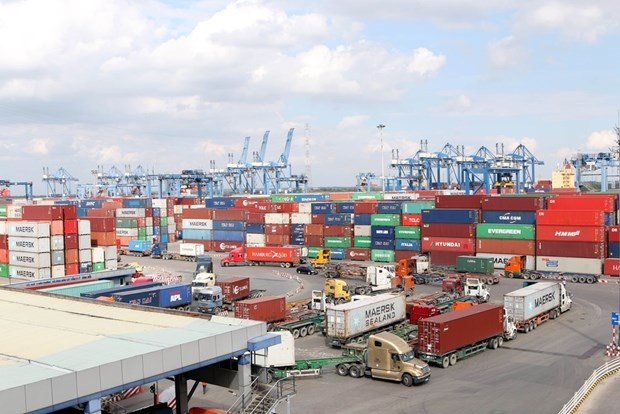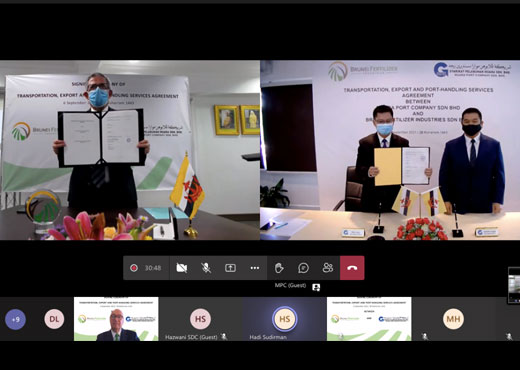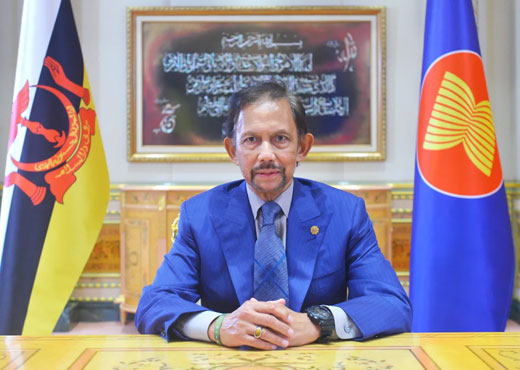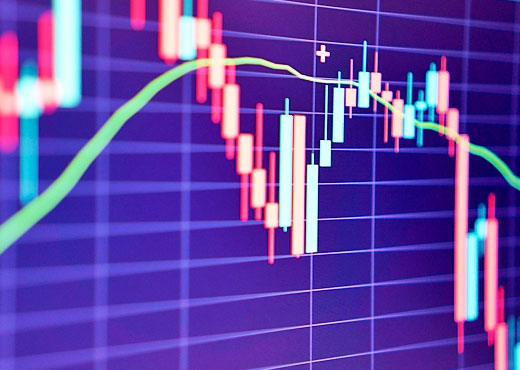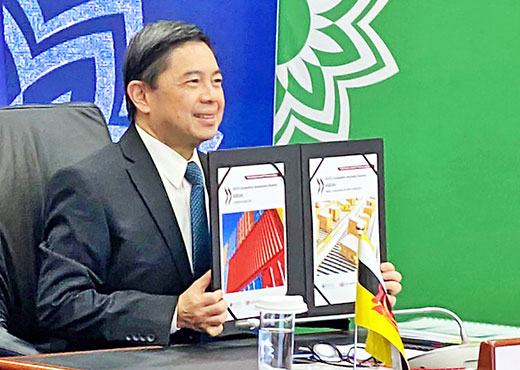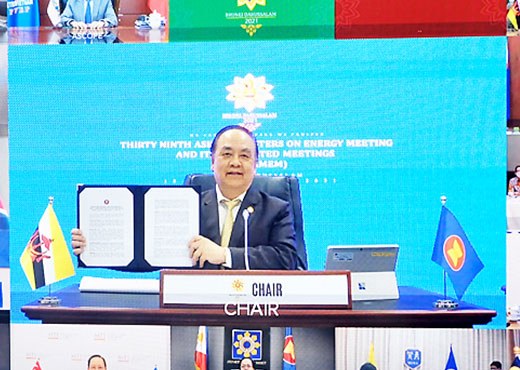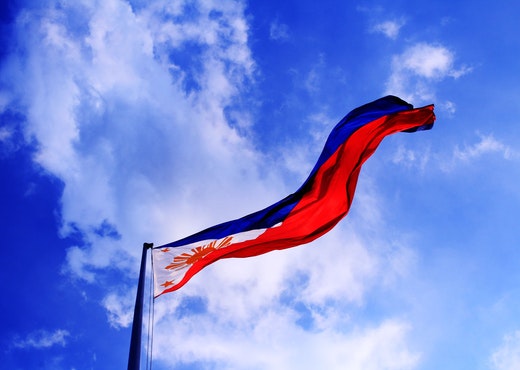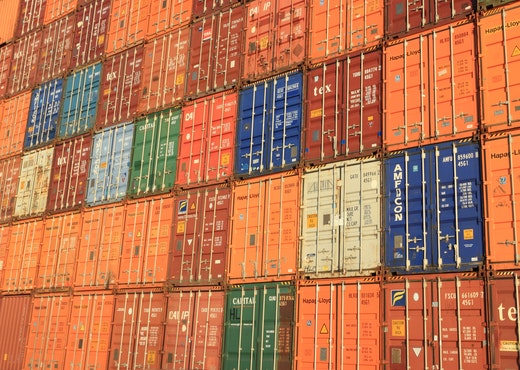BANDAR SERI BEGAWAN – Brunei Fertilizer Industries (BFI) on Monday signed an agreement with Muara Port Company (MPC) that will allow the fertilizer manufacturer to export granular urea through the country’s biggest marine port.
With BFI eyeing exports of granular urea to far-off markets such as India, Australia, Latin America and the United States, MPC, the operator of Muara port, is best positioned to handle the fertilizer cargoes, BFI said in a press release.
MPC recently began preliminary expansion works for Muara port that will double the size and capacity of Brunei’s main container terminal by 2023.
Under the agreement, MPC will provide BFI with the logistics of transporting urea from Sungai Liang Industrial Park to Muara Port, which can accommodate vessels of up to 40,000 deadweight tonnage to enable BFI to reach remote customers.
MPC will also take over operations of BFI’s terminal in Sungai Liang Industrial Park, which can accommodate smaller vessels up to 9,000 deadweight tonnage.
Date of Release: 7 September 2021
BANDAR SERI BEGAWAN — China maintained its position as ASEAN’s top trading partner despite the ongoing pandemic that has disrupted economic activities all over the world, His Majesty Sultan Haji Hassanal Bolkiah said on Friday.
In his titah at the virtual opening ceremony of the 18th China-ASEAN Expo (CAEXPO) in Nanning, China, His Majesty said ASEAN and China registered an increase in total merchandise trade in 2020.
This underscored the strong economic ties and business linkages that characterised the long-standing relationship between ASEAN and China, he added.
Trade between China and ASEAN reached US$684.6 billion last year.
China has been the regional bloc’s largest trading partner for 12 consecutive years. As of June this year, mutual investment between China and ASEAN exceeded US$310 billion.
Date of Release: 11 September 2021
International Monetary Fund (IMF) Executive Directors encouraged Brunei Darussalam authorities to continue to build on efforts to diversify the economy, further attract foreign direct investment (FDI) and enhance human capital and improve private employment.
They welcomed the policy priorities of the recently released Economic Blueprint, and highlighted the importance of accelerating digital and green growth to foster job creation and enhance resilience.
This was highlighted in a report when IMF Executive Board concluded 2021 Article IV Consultation with Brunei Darussalam recently.
Executive Directors also commended the authorities for the strong, timely and multi-pronged policy response to the COVID-19 pandemic and associated decline in oil and gas prices. Noting the uncertain outlook, with risks skewed to the downside, the executive directors stressed the need to maintain supportive policies until recovery is on a firm path. They also underscored the importance of continued reforms to support economic transformation, strengthen resilience, and foster green, digital, and inclusive growth.
Date of Release: 28 September 2021
The logistics sector plays a pivotal role for ASEAN integration into regional and global value chains which accounts for about five per cent of gross domestic product (GDP) in the region, said Minister at the Prime Minister’s Office and Minister of Finance and Economy II Dato Seri Setia Dr Awang Haji Mohd Amin Liew bin Abdullah at the ASEAN Economic Ministers (AEM) meeting yesterday.
In view of the sector’s significant role in fostering economic development, the minister added that it is important to ensure a well-developed and efficient logistics network, due to its impact on the economic activities, trade cost competitiveness and supply chain connectivity.
“We were pleased to work with the Organisation for Economic Cooperation and Development (OECD) and ASEAN Secretariat in embarking this project three years ago, as part of the ASEAN Competition Action Plan (ACAP) 2016-2025, towards a more pro-competitive regulations and elimination of competition distortions, to enhance market efficiencies,” he said.
Dato Seri Setia Dr Awang Haji Mohd Amin Liew also pointed out that five sectors – transport by road, inland waterway and maritime, freight forwarding, warehousing, small package delivery services and value-added services are the key for the development of the enterprise sector, particularly the micro, small and medium enterprises (MSMEs) and new start-ups, which can generate economic growth and employment.
An assessment of the impact of state-owned enterprises on competition entitled OECD Competitive Neutrality Reviews: Small-Package Delivery Services in ASEAN was also carried out by the OECD, which has become more relevant, due to the rapid growth of e-commerce amid the COVID-19 crisis.
Date of Release: 10 September 2021
The Bandar Seri Begawan Joint Declaration of the 39th ASEAN Ministers on Energy Meeting (AMEM) on Energy Security and Energy Transition, which we will seek to adopt, will go a long way in pursuing our goal of energy security, while transitioning our diverse energy systems towards lower-emissions to achieve access to affordable, reliable, sustainable and modern energy for all, said Minister of Energy Dato Seri Setia Dr Awang Haji Mat Suny bin Haji Mohd Hussein.
He said this while officiating and chairing the 39th AMEM yesterday.
The virtual meeting was vice-chaired by Cambodian Minister of Mines and Energy Suy Sem and attended by the Deputy Minister of Energy as head of delegation for Brunei Darussalam, Dato Seri Paduka Awang Haji Matsatejo bin Sokiaw.
During the meeting, Brunei Darussalam with the other ASEAN member countries agreed on the adaptation of the Bandar Seri Begawan Joint Declaration of the 39th ASEAN Ministers of Energy Meeting on Energy Security and Energy Transition as part of the country’s ASEAN Chairmanship five deliverables for 2021.
Among the objectives of the declaration is to shape the regional energy outlook even beyond 2025, in ensuring future energy security and accelerating the low-carbon energy transition towards dynamic and sustainable regional economic community.
Date of Release: 16 September 2021
“There is a bright future in borderless entrepreneurship. Digital is now the way to do business and there is no turning back,” said Laurent Tam Nguyen, co-founder and general manager of Digital Mekong in Vietnam, a virtual market agency addressing the need for an entrepreneurship freelancer market in the Association of Southeast Asian Nations (ASEAN).
Nguyen was one of the speakers at a recent webinar on borderless entrepreneurship organized by the Economic Research Institute for ASEAN and East Asia (ERIA).
Citing a survey from global management consulting firm McKinsey & Company, Nguyen said COVID-19 has accelerated the digitalization of companies in the Asia-Pacific region by about four years.
Even industries that are highly traditional and technology-averse are now joining the bandwagon and finding that the digital approach can also work for them, he added.
As the trend of borderless entrepreneurship is quickly escalating, he emphasized the soft skills that all entrepreneurs should have, including resilience, adaptiveness, empathy, and transparency in managing teams and building businesses.
Haewon Rah, engagement manager at Techstars, a global startup accelerator based in South Korea, pointed out that investors will be more likely to support and invest in the companies that are interested to scale up their business globally.
But she acknowledged that going global is neither easy nor simple as there are differences in regulations, culture and behavior that an entrepreneur needs to become aware of.
She shared two important factors critical to successful borderless entrepreneurship: the ability to utilize networks and the willingness to create small wins.
Haewon said enterprises must actively network to gain knowledge of how businesses in the region work, adding that even group chats are a form of networking that can yield results down the line.
Creating small wins is about becoming aware that immediate, big achievements (and profit) are likely not realizable early on, and it is wise to take small but steady steps toward reaching one’s goals. Haewon suggested working in the local area first while at the same time trying to build a network and find someone who can help the business expand into a new location.
Jirut Wattom, technology strategy manager at global accelator Sprint in Thailand, echoed Haewon, saying the pandemic provides an opportunity for entrepreneurs to scale up their business faster as they can mobilize and operate their teams to do business locally while also accessing global markets.
For Jirut, although physical interaction will remain important, digitalization has been helping many regional enterprises to compete with their counterparts around the world. He highlighted how the borderless entrepreneurship ecosystem has given entrepreneurs the advantage of high exposure to clients or talents from various cultures and backgrounds.
During the Q&A session, the speakers discussed how entrepreneurs can address the challenge of differing national regulations by being creative and agile as well as learning in-depth about the entrepreneurship ecosystem in other countries and the region.
Moreover, as digitalization has now reduced the cost of testing products, they encouraged entrepreneurs to always conduct market testing before launching their expansion bid.
Lastly, joining startup support programs or accelerator programs is also another notable way to expand networks and discover opportunities for scaling up, they said.
Business travellers engaged in selling goods or services and investments between Asia-Pacific Economic Cooperation (APEC) economies will experience streamlined entry to participating economies.
This, as the APEC business travel card (ABTC) transitions from physical to virtual cards using the new mobile application that will provide real-time updates/approvals by economies using their application status.
“As the virtual card will replace the current physical cards, they are considered as good as the physical card when presented to the immigration authorities at points of entry in APEC member countries,” Department of Foreign Affairs (DFA) acting Asst. Secretary Senen Mangalile informed Philippine Exporters Confederation Inc. (PHILEXPORT) President Sergio Ortiz-Luis Jr. in a letter.
The ABTC provides business people streamlined entry to participating economies through a simple pre-clearance system that allows them to obtain a multiple short-term entry to participating APEC economies through a single application.
The virtual ABTC has been created for the convenience of approved cardholders and will bring the ABTC scheme into the modern and digitized era of global travel. It is free to download and accessible for those applicants who have been approved for an ABTC.
“It provides cardholders from fully participating member economies with a more secure, efficient, convenient and user-friendly service.
The virtual ABTC automatically updates as a cardholder opens or refreshes their smart device ‘app’, ensuring all relevant information is up-to-date and readily available for the cardholder’s travel,” according to the APEC Business Mobility Group.
Participating economies in the ABTC scheme currently includes Australia, Brunei Darussalam, Chile, Chinese Taipei, Hong Kong, Indonesia, Japan, Republic of Korea, Malaysia, Mexico, New Zealand, Papua New Guinea, People’s Republic of China, the Philippines, Peru, Russia, Singapore, Thailand and Vietnam.
Each economy determines its own timeline to transition to the virtual ABTC for its cardholders.
In line with this, Mangalile requested the exporters’ group to provide the department with a list of ABTC cardholders among its members with their respective personal email addresses.
“The information is needed so that they could be provided with access or log-in credentials to the mobile application,” he said.
Mangalile also asked the PHILEXPORT to inform its members who are ABTC holders about the new process, adding that the department will provide a user manual and frequently asked questions once APEC has finalized them.
Following appeals from local exporters for more vessel space, the first ever Philippine-flag container ship is set to embark on its maiden international voyage, carrying export containers to the United States.
Iris Logistics Inc., a subsidiary of logistics company Royal Cargo, Inc., announced it will hold a virtual maiden voyage ceremony on September 20 to launch its container ship M/V Iris Paoay as she sails to the US.
The news is welcome development for struggling exporters, who in a July 2021 survey conducted by the Philippine Exporters Confederation, Inc. (PHILEXPORT) said the lack of space on international shipping lines is their top shipping challenge today.
In preparation for the container ship’s landmark US voyage, the Bureau of Customs Port of Manila (BOC POM) met virtually with Iris Logistics officials on September 14, 2021.
During the meeting, Iris Logistics requested assistance from the agency for the seamless interface between BOC POM and M/V Iris Paoay, which has a carrying capacity of 1,118 twenty-foot equivalent units of containers.
District Collector Michael Angelo Vargas assured the smooth passage of the containerized vessel that will be carrying export- and import-laden containers to and from the US, and invited the cargo company for a walk-through to become familiarized with the bureau’s processes, BOC said in a release.
“The Port of Manila is ready to hit the ground running. Likewise this would be a big boost for BOC Port of Manila to process goods coming from the USA as currently the bulk of goods that come in POM are from China and the ASEAN region,” Vargas added.
In a related development, Davao-based Reefer Express Line Filipinas, Inc. also announced the start of a monthly service this month from Mindanao to the US to help manufacturers facing global shipping problems.
According to an email provided to Dr. Enrico Basilio, Chairman of the Networking Committee on Transportation and Logistics (NCTL) of the Export Development Council, one of the two ships, named M/V Cool Spirit, will ply the General Santos City-US route, as disclosed in the email by Felix Ishizuka of Reefer Express Line. It has a capacity of about 560 TEUs or 5,600 pallets position or 600 TEUs ondeck capacity. It is set to arrive at the Port of Philadelphia on September 30.
Meanwhile, another of its vessel can carry 700 TEUs capacity and will start sail to the US West Coast from Davao through Thailand on October 5.
Basilio shared the information with PHILEXPORT which had been working with the NCTL and Royal Cargo to respond to calls from shippers for relief from the capacity squeeze.
As part of the intervention, the three groups agreed to propose to government to allow domestic shipping lines to operate beyond domestic waters. Royal Cargo agreed to help by providing its ships to transport export cargoes to their ports of destination.
For the longer term, they are proposing the following:
· Passage of the Philippine Ship Registry Act which would enable Philippine flag vessels to go international
· Removal of distinction between "coastwise license" and "international license" for Philippine-flagged ships
· Securing of government imports through FOB (freight costs are separate from the cargo value of imports) to enable Philippine-flagged ships to participate in the carriage of government cargo
· Modification and amendment of MARINA Memorandum Circular No. OS-2019-02 to allow Philippine-registered vessels to concurrently be engaged in domestic and international trade
Issues with supply chain disruptions, not just in the Philippines but around the world, have been intensifying, the result of factors such as a surge in global demand, the early resumption of manufacturing in China, port congestion, and the reduction of capacity by carriers in response to lockdowns.
This has led to local shippers being unable to book slots on international container liners and having to face record-high freight rates, which are causing shipment delays and mounting losses for exporters and importers.
PHILEXPORT president Sergio Ortiz-Luis, Jr. earlier said that while these are global issues beyond anyone’s control, the government and private sector must still work closely together to effectively address them.
Business and economic experts sounded an urgent call for emerging economies in Asia
to adopt electronic sanitary and phytosanitary certificates (SPS e-certs) to unlock the
many benefits of cross-border paperless trade in food and agricultural products.
Ronald Antonio Butiong, chief of regional cooperation and integration for sustainable
development at the Asian Development Bank (ADB), said in a recent webinar that
digitalizing trade facilitation procedures is necessary for more inclusive trade and
development.
This is more so in agriculture, on which many developing economies in the region
depend.
Butiong explained: “Cross-border production networks in Asia and the Pacific are
particularly strong in primary goods, including agriculture. In 2019, for instance, Asia’s
global value chain participation rate was about 87% of its gross exports in the primary
sector, higher than all other sectors, and about 70% of this comes from trade within
Asia.”
Switching to SPS e-certs will benefit our economies, enhance trade, and promote rural
employment and the participation of small businesses, he added.
He urged continued support for trade facilitation through enhancing digitalization,
harmonizing policies, and building capacity in customs systems, largely by acquiring the
needed technology and streamlining policies and procedures while promoting
interoperability of ICT systems.
He expressed hope that SPS e-certs will become a reality, noting that “this is a topic
that requires urgent action.”
Yann Duval, officer in charge of trade, investment and innovation at the United Nations
Economic and Social Commission for Asia and the Pacific (UN ESCAP), said SPS e-
certs are among the documents being prioritized by countries implementing cross-
border paperless trade.
This, he said, means that SPS electronic certificates will be a key focus of discussions
when the Framework Agreement on Facilitation of Cross-Border Paperless Trade in
Asia and the Pacific is implemented starting early next year.
The Agreement, a UN ESCAP treaty adopted in May 2016 to accelerate the
implementation of digital trade facilitation measures, entered into force on February 20,
2021.
It aims to promote cross-border paperless trade by enabling the exchange and mutual
recognition of trade-related data and documents in electronic form and by facilitating
interoperability among national and subregional single windows or other paperless trade
systems.
Melvin Spreij, head of the Secretariat of the Standards and Trade Development Facility
(STDF), at the same event noted that governments and industries are actively seeking
solutions to move goods across borders more quickly and efficiently in the wake of the
entry into force of the World Trade Organization’s Trade Facilitation Agreement and as
a result of the impact of the COVID-19 pandemic.
Spreij called for the increased use of electronic certification to facilitate safe trade in
food and agriculture products.
“Paperless sanitary and phytosanitary (SPS) systems can improve traceability
throughout supply chains, cut trade times and costs, lower food waste, reduce
fraudulent certificates and build trust among trading partners,” he said.
Oswald Kuyler, managing director of digital standards initiative at the International
Chamber of Commerce (ICC), said paperless SPS systems offer enormous efficiency,
effectiveness and risk-reduction benefits.
When economies transition to digital trade, it will ensure people’s health and safety by
minimizing of physical contact, promote consumption of safe products, and solve the
trade finance gap for entrepreneurs trying to support their families, he said.
Finally, Hilde Kruse, senior officer at Codex Alimentarius Commission Secretariat for the
FAO/WHO Food Standards Program, disclosed that the Codex Committee on Food
Import and Export Inspection and Certification Systems (CCFICS) has developed a draft
guidance document on the paperless use of electronic certificates, including an
electronic version of the Generic Model Official Certificate.
“It was highlighted that the COVID-19 pandemic had illustrated the importance of
paperless use of electronic certificates and the urgency to complete the revision of the
existing guidelines,” said Kruse.
“Furthermore, this work is according to the CODEX Strategic Plan 2020-2025, which
states that CODEX should address current, emerging and critical issues in a timely
manner.”
Following the virtual presentation of the draft guidance three months ago, the final
version will be presented to the Codex Alimentarius Commission for adoption when it
meets from November 8 to November 18 this year, she said.
The Commission is the global body that develops principles and guidelines for food
inspection and certification systems.
The Codex Alimentarius, or “Food Code,” is a collection of international standards,
guidelines and codes of practice to protect the health of consumers and ensure fair
practices in the food trade. Codex standards are used worldwide to harmonize national
food safety regulations and are recognized as the international reference point for food
safety.
When food producers and traders comply with Codex standards, consumers can trust
the safety and quality of the products they buy, and importers can have confidence that
the food they ordered will meet the specifications.
The Airbnb of luxury luggage, Uber for home massage, and blockchain for pets are just a few recent examples of start-up ideas that make you wonder if the world has run out of bigger dreams to pursue. Indeed, the aggregator business model has disrupted almost any industry, with at least half a dozen companies now competing in every relatively big niche from flower delivery to private jet hailing. The popularity of artificial intelligence (AI) and blockchain then gave birth to another wave of start-ups applying these trendy technologies to just about any area of business. And the rise of telework during the COVID-19 pandemic now brought life to yet another generation of start-ups offering various technologies for improved remote collaboration: those copying Zoom (GoToMeeting), Slack (PukkaTeam), Dropbox (Box and Cloudera) or covering very niche user needs like scheduling a team lunch for a hybrid-working team (Lunch Train).
This makes some observers wonder if Silicon Valley is running out of big ideas. Entrepreneurs seem to hunt for the next niche market where the cookie-cut technological concepts have not been applied yet, unavoidably framing their pitch into a “we are X for Y” pattern. Bold product innovations now seem to be the prerogative of tech giants, while the destiny of start-ups is to supply big players with small process innovations that would be acquired together with the whole company. While this trend might seem like an indication of Silicon Valley’s declining innovativeness, in fact, it is not. Innovation does not necessarily need to completely change the way humans interact with computers, as Doug Engelbart’s ideas - personal computer, hypertext, word processing, teleconferencing, mouse, to name but a few - did.
To pass as “business innovation,” a new product or process needs to differ significantly from what was previously produced by the firm, in its own market, or in the entire world, as Organisation for Economic Co-operation and Development (OECD), the main goalkeeper for measuring innovation on the country level, puts it. Simply put, the same idea applied in a new industry or geographical location can bring significant disruption and thus lead to substantial business growth if it solves real people's problems. When evaluating a start-up pitch, it takes extra effort to judge the idea not by its uniqueness but by its appropriateness to a new market in which it is applied.
In fact, old ideas could potentially yield even better results than in the market they were originally implemented in when brought to the geographies not spoiled with technological improvements. Perhaps, the most prominent “not spoiled” region like this is now in Southeast Asia. Its start-up scene outperformed all other emerging markets in 2020 by raising US$8.2 billion. What’s more, it continues to show a great performance in 2021 as well, setting a record year by raising US$6 billion of venture capitalist (VC) funding in the first quarter alone. The growth of the digital economy in Southeast Asia provides fertile grounds for ventures.
On the one hand, the population is still coming online. In 2020, over 40 million users in six major markets hit the web for the first time, which is 10 percent of all the Internet users in the region. They are not fully covered with the technological solutions mature users are used to, like mobile banking, delivery services, and e-commerce. On the other hand, the population is increasingly willing to pay. According to Boston Consulting Group (BCG)’s 2018 estimates, up to 10 percent of the citizens in the major Southeast Asia economies belonged to what consultancy dubbed “mass-affluent class.” And by 2030, their share in the region might grow up to 21 percent. These 136 million digitally-savvy and premium product-oriented consumers are expected to further drive the demand in the region, along with the projected 350 million middle-income consumers. Combining these two factors provides plenty of opportunities, and there are already many start-ups capturing them. Does this mean that cookie-cutter solutions are enough for these markets? Not really. What you actually need to do is to look at the proven models somewhere else, on the one hand, and analyze the real problems of users in the region on the other hand. And finally, use the former for solving the latter.
In some cases, a slight adaptation of the solution already implemented somewhere else would work. For example, Southeast Asia e-commerce leader Lazada was actually inspired by Amazon, with the initial goal articulated as “becoming the Amazon of Southeast Asia” by riding on the wave of increasing Internet penetration and demand for e-commerce services. Tiki, another e-commerce player in the region, was not only called the “Vietnamese Amazon,” but also started the business as an online bookseller, just like Amazon did. In other cases, a unique user pain might inspire a completely new solution. For example, the Indonesian grocery delivery service Sayurbox got its business idea from observing tens of thousands of small-scale farmers spread across 17,000 islands in the country struggling without tech-savvy logistics solutions. Whereas PayMaya created its mobile banking app specifically for the Philippines market to solve the problems of the unbanked population in the country, which still makes up two-thirds of the nation despite the increasing number of smartphone users.
But more often than not, the approach can be blended. The two largest and most-awaited IPOs in Southeast Asia this year - Grab and GoTo - are both coming from the companies that started off as an Uber-type ride-hailing platform, developed into a Chinese super-app- type ecosystem, and all along were devoted to solving the problems of their local customers and partners on the ground. While there is no simple recipe for winning Southeast Asia markets, reapplying simple solutions from somewhere else should not be shied away from. Product usage, and subsequently business growth, comes when your idea solves the real user pain. And whether this idea is a globally unique one or another application of the “we are X for Y” pattern - does not matter.
Source: The ASEAN Post

